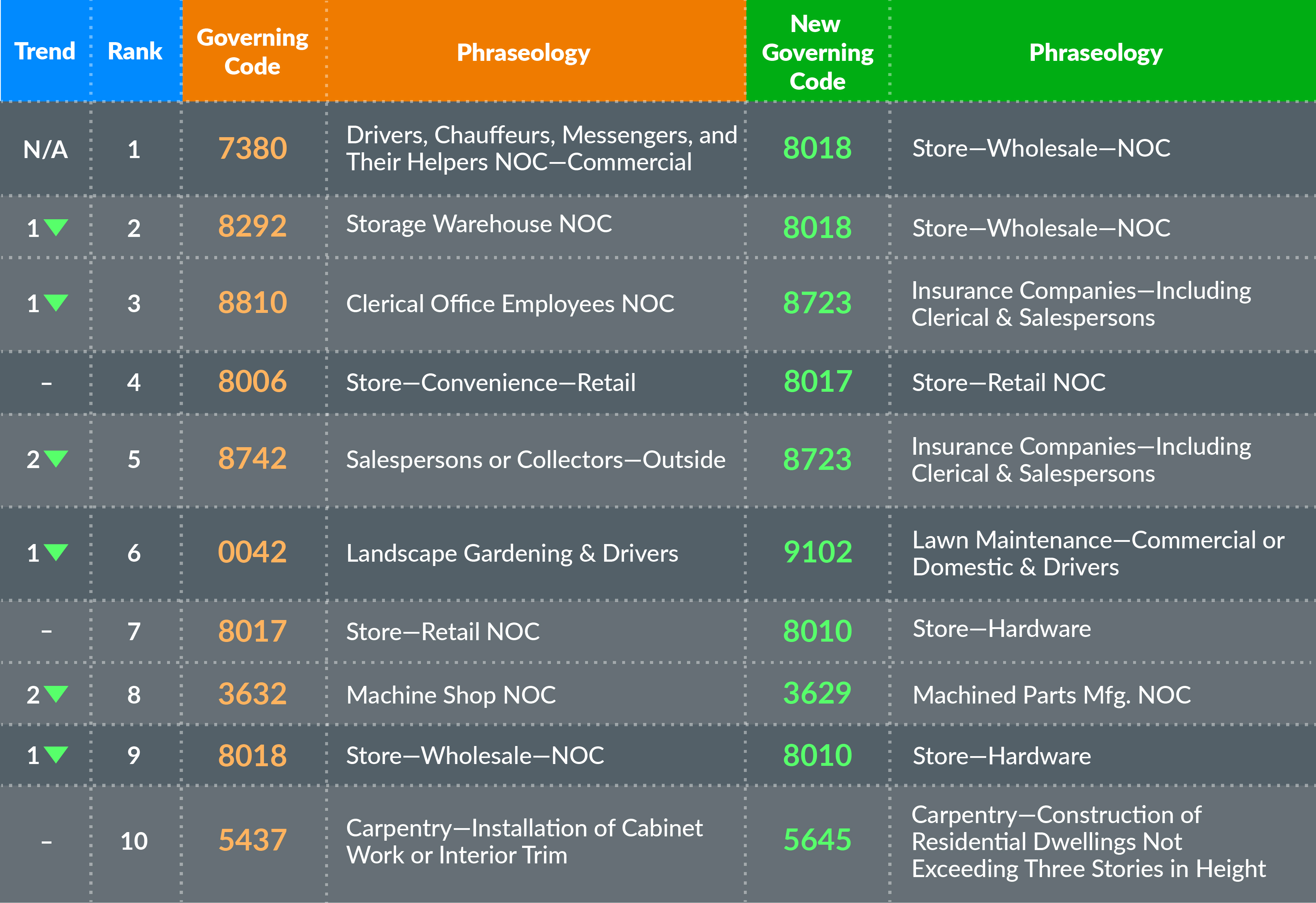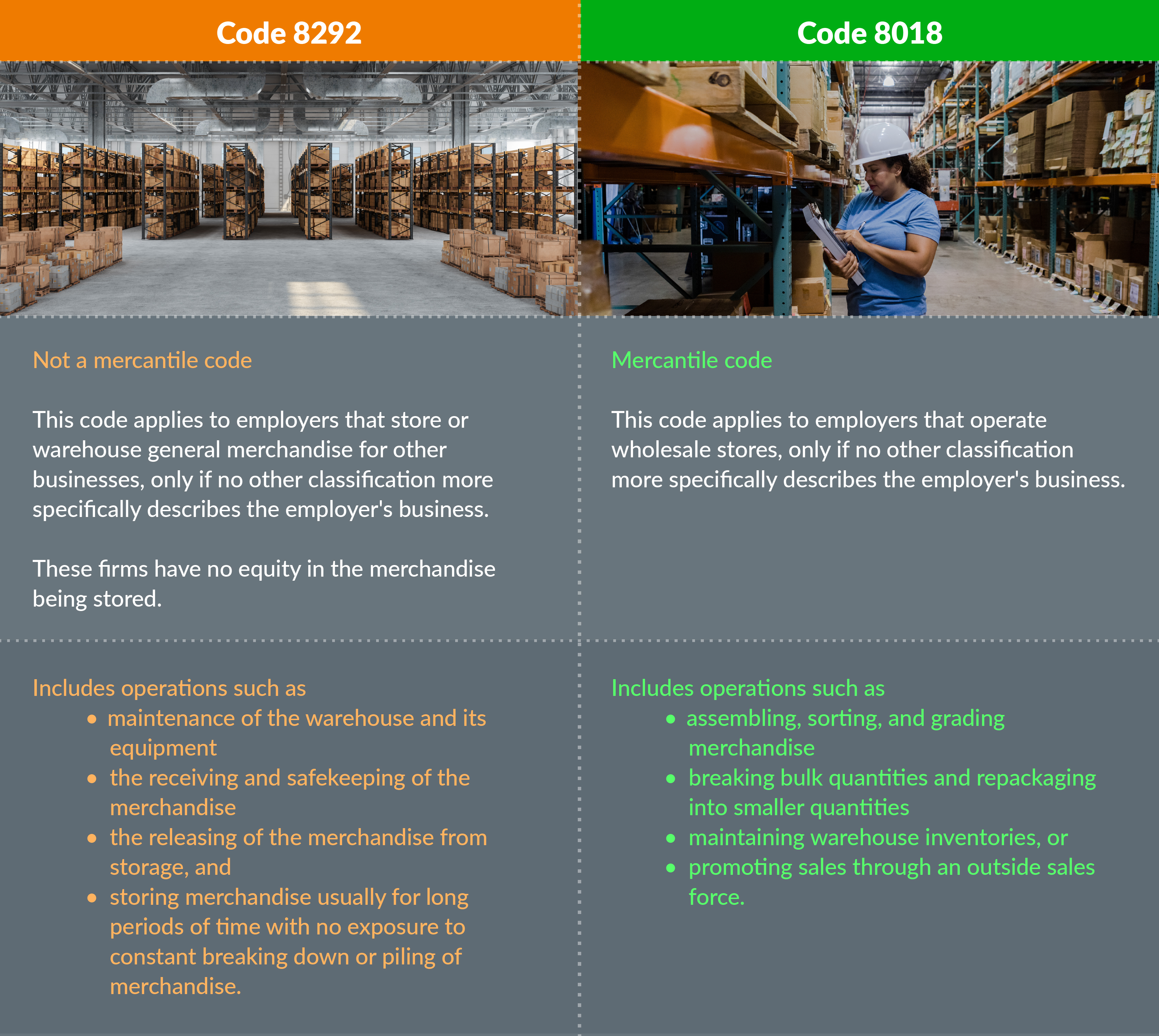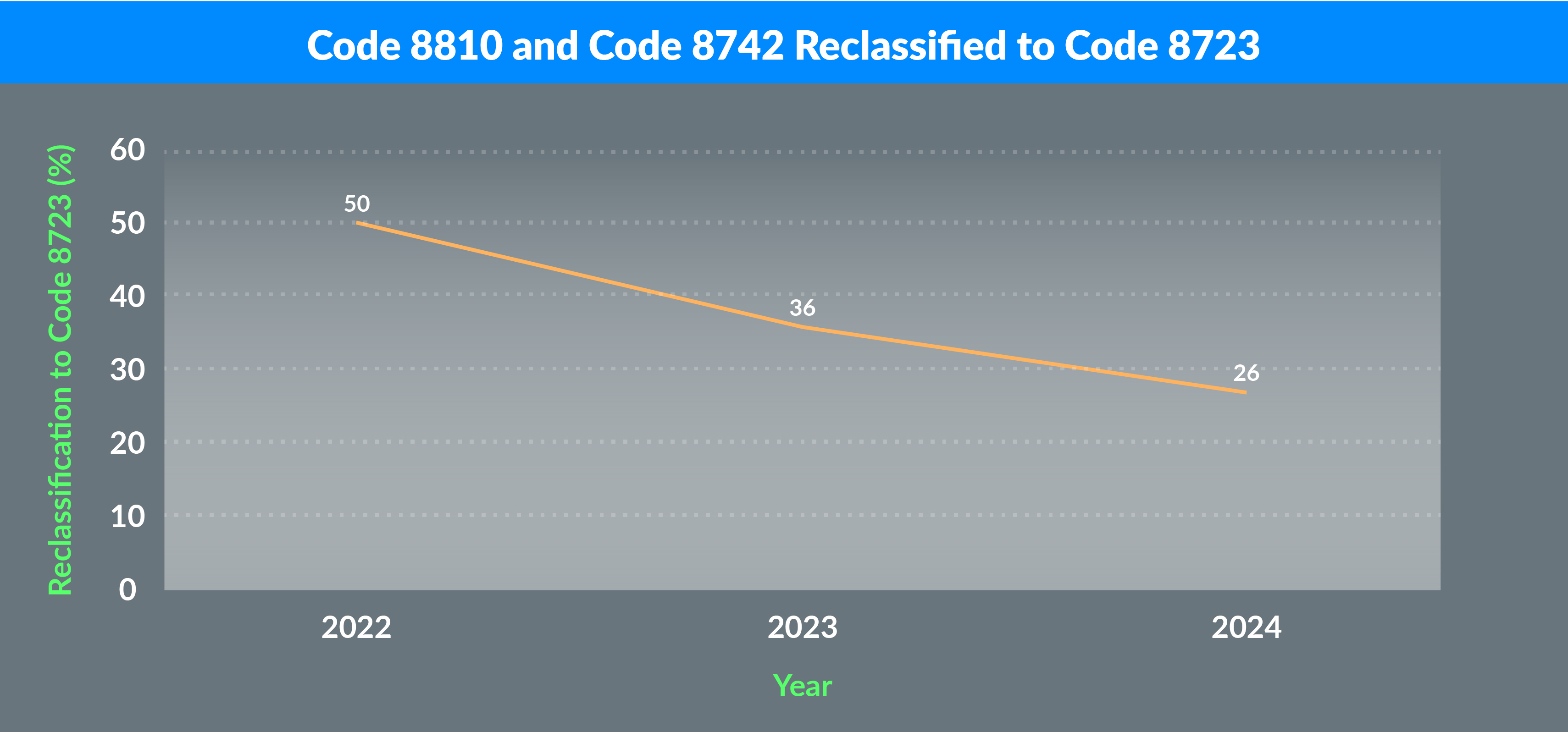Top 5 Workers Comp Classification Codes That Agents Get Wrong

Assigning the appropriate classification code at policy issuance is an important step in maintaining the integrity of the classification system.
The National Council on Compensation Insurance (NCCI) conducts classification inspections in all NCCI states through its Classification Inspection Program (CIP) to monitor the accurate and consistent application of the classification system.
One key component of the CIP is to conduct inspections of a policyholder’s operations to determine whether the governing classification code or other classification codes identified on the policy reflect the current business operations.
Using data obtained from the CIP between 2022 and 2024, here are the top 10 reclassified governing codes and the top code to which NCCI reassigned each of these governing codes. The ranking order is based on the percentage of policies that were reclassified.

The trend column indicates changes in ranking compared to the NCCI’s “2023 Top Reclassified” findings. A green downward arrow indicates an improvement in rank as the code moved further down the reclassification list. A dash indicates the classification code remained in the same rank as last year’s “Top Reclassified” article.
Here are the top five reclassified codes:
1) Code 7380—Drivers, Chauffeurs, Messengers, and Their Helpers Not Otherwise Classified (NOC)—Commercial. In 2024, this code emerged as the most reclassified code—its first appearance in the top spot since 2011. Where this code was the governing classification, over 80% of the policies experienced a change to their governing classification code. Of those, almost 54% had their governing classification code reassigned to a mercantile code.
More on Workers Comp
More than half of policies with Code 7380 as the governing classification code were changed due to the employers operating businesses that sell merchandise, often with warehouse operations. The most common reclassifications were to Code 8018—Store—Wholesale—NOC, which accounted for 25% of the reclassified policies; and Code 8010—Store—Hardware, which accounted for 10% of the reclassifications. An additional 16 other mercantile classification codes collectively made up close to 19% of the reclassified policies.
In certain instances, Code 7380 remained on NCCI’s inspection report due to continued driving or delivery exposure. However, to more accurately reflect the employer’s current operations—primarily retail or wholesale mercantile business—a mercantile classification code was added as the governing classification code.
2) Code 8292—Storage Warehouse NOC. This year’s data shows that nearly 59% of the policies inspected with Code 8292 as their governing classification code were changed to a mercantile code. This marks a slight decline from the 60% shown in the 2023 analysis.
Of the reclassified policies, 80% were reassigned to a mercantile classification code, with Code 8018—Store— Wholesale—NOC as the most common reassigned code. This code alone accounted for 49% of the 80% that were reassigned to a mercantile classification code.
When a mercantile business operates a warehouse exclusively for handling, storing and distributing its own products, that facility is considered an extension of the business and is not separately classified to a warehousing code.
Another key factor contributing to the reclassification trend is the proper classification of third-party fulfillment centers. These businesses are contracted to store merchandise on behalf of their clients and are responsible for processing, packaging and shipping individual customer orders as they are received.
Code 8292 is a warehousing classification code intended for employers that store merchandise for others and do not own the merchandise being stored. These employers typically provide long-term storage services and do not perform order fulfillment or distribution activities.

3) Code 8810—Clerical Office Employees NOC and Code 8742—Salespersons or Collectors—Outside. These codes continue to rank among the top reclassified codes, holding the third and fifth positions, respectively. Despite their high rankings, both codes are experiencing a notable downward trend in reclassifications.
Approximately 42% of the policies initially assigned to either Code 8810 or Code 8742 were reclassified to a different governing classification code. Over 26% were reassigned to Code 8723—Insurance Companies, Including Clerical & Salespersons.
This marks a 10% decrease from last year, when more than 36% of such reclassifications were to Code 8723, and a 24% drop from two years ago, when the figure was 50%.

The reclassification of these two codes is due to changes in the classification system, specifically Item B-1419—Revisions to Basic Manual Classifications and Appendix E—Classifications by Hazard Group, which established Code 8723 for insurance companies in 2012.
4) Code 8006—Store—Convenience—Retail. Over the past three years, Code 8006 has consistently ranked among the top reclassified classification codes. The data shows that inspections of over 43% of policies with Code 8006 as the governing classification resulted in a change to their code, marking a 5 percentage point increase from the previous year.
NCCI reclassified more than 69% of those policies to just two classification codes. Thirty-six percent of policies inspected were reassigned to Code 8017—Store—Retail NOC, which applies to retail stores that sell merchandise that is not described by a specialty retail store classification code.
Policies reassigned to Code 8017 included coffee shops, ice cream shops, specialty beverage shops and smoothie shops, as well as retail stores primarily selling tobacco and alcohol. These businesses did not offer the range of products commonly found in convenience stores or grocery stores, and therefore did not meet the criteria for Code 8006.
An additional 33% of policies inspected were reassigned to Code 8033—Store—Meat, Grocery and Provision—Combined—Retail NOC, which applies to retail stores that sell grocery items as well as fresh and cured meats, poultry, or fish. The reassignment of grocery and convenience stores from Code 8006 to Code 8033 was primarily due to the stores handling, cutting or packaging fresh or cured meats, poultry or fish—activities that are not allowed under Code 8006.
Olivia Overman is IA content editor.
NCCI’s Class Look-Up tool allows users to look up classifications, statistical codes, and related filed and non-filed content. This tool is free for use by authenticated users.
This article is provided solely as a reference tool to be used for informational purposes only. The information in this article shall not be construed or interpreted as providing legal or any other advice. Use of this article for any purpose other than as set forth herein is strictly prohibited.











